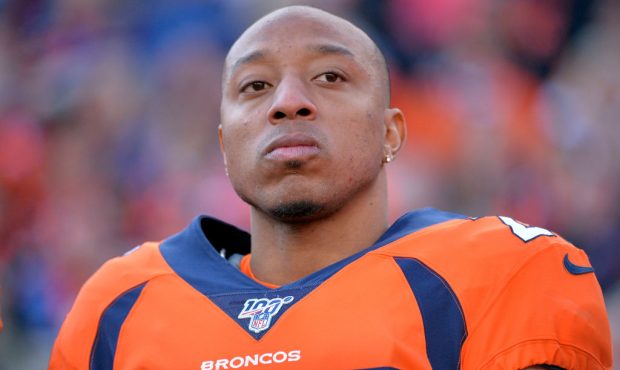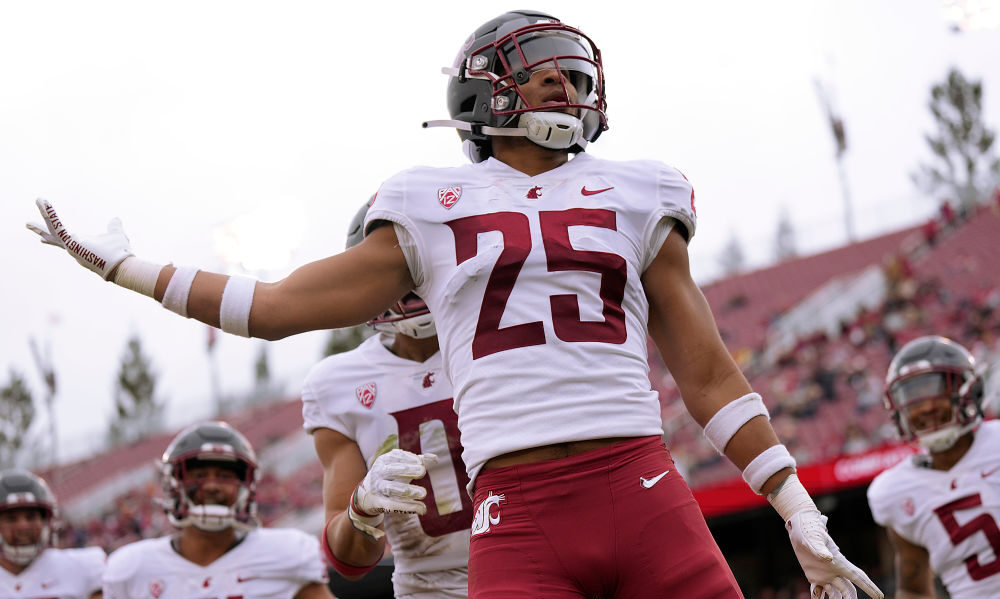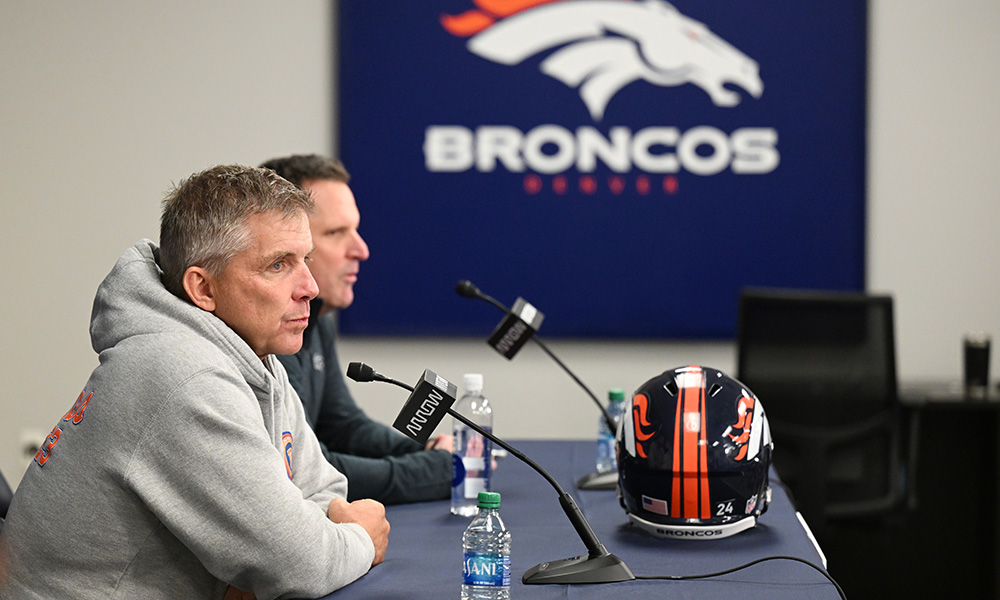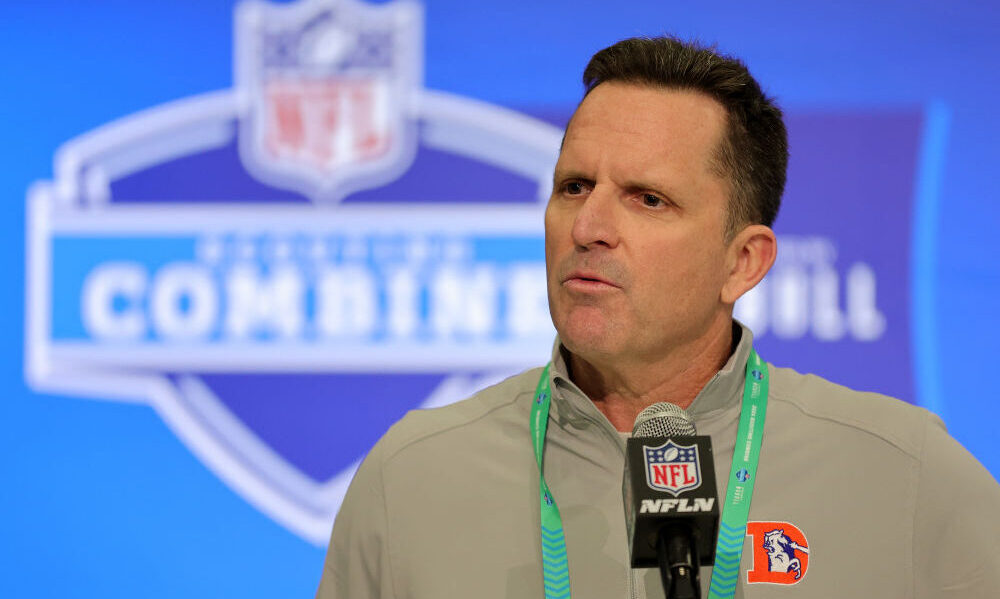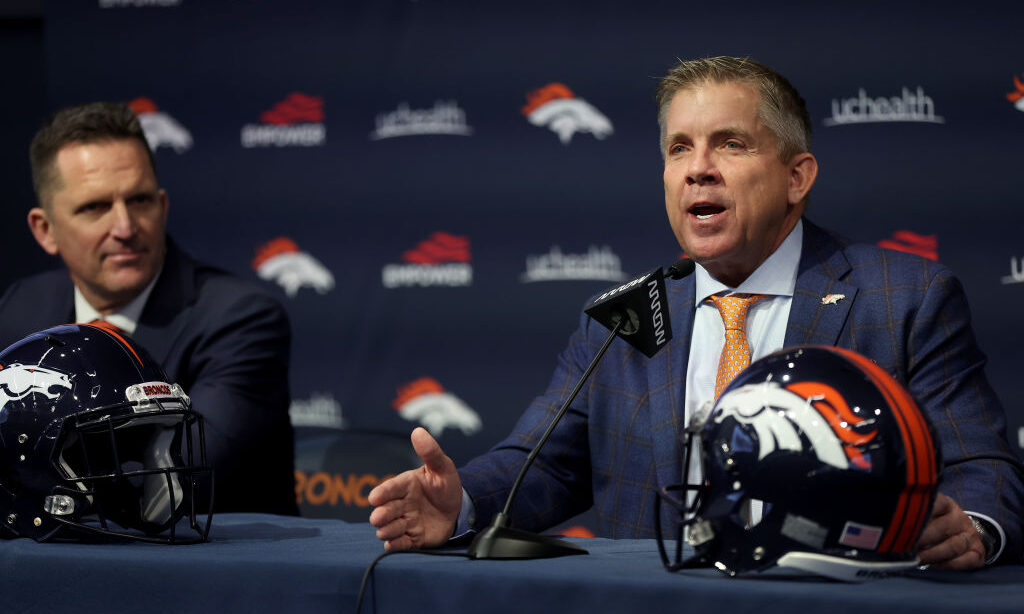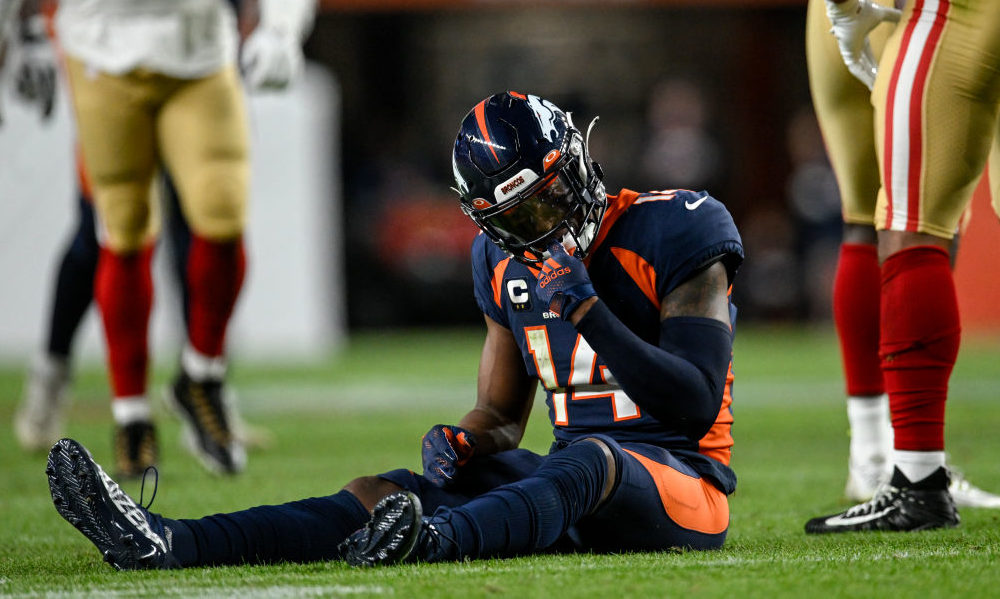SeattleSports.com: The complicated legacy Russell Wilson leaves in Seattle
Mar 17, 2022, 6:00 AM | Updated: 1:32 pm
“At the end of the day, it’s your legacy. It’s your team’s legacy.”
Russell Wilson spoke around a question from longtime sports talk host Dan Patrick. Patrick had asked Wilson whether the veteran quarterback had a say in what the Seahawks did offensively when it came to free agency and the draft.
It was hardly the first time Wilson had been probed about his relationship with Seattle’s front office and coaching staff. He’d fielded questions about fractured locker rooms and reports of tension between himself and his teammates. He’d stood in front of reporters at countless postgame press conferences, taking questions about his biggest plays and his regrettable mistakes.
Wilson always moved so deftly in these moments, his late father having coached him through fake press conferences from the age of 7. He knew what to say and what to avoid. Turned the non-answer into an art form.
“For me personally, I want to be able to be involved because at the end of the day it’s your legacy. It’s your team’s legacy,” Wilson told Patrick. “It’s the guys you get to go into the huddle with… and those guys you’ve got to trust.”
Here, the host pressed. Patrick wasn’t satisfied with the response, fairly, and wanted to know whether Wilson was or had been involved in personnel decisions. And if not, did he want to be?
To Wilson’s credit, it’s not unusual for a franchise quarterback to influence team decisions. Chiefs quarterback Patrick Mahomes pushed for Kansas City to draft LSU’s Clyde Edwards-Helaire in 2020. They did. Aaron Rodgers had placed plenty of pressure, openly, on Green Bay’s front office and made no bones about his frustration over being blindsided when the Packers drafted his expected successor, Jordan Love, in the first round. Later, Packers general manager Brian Gutekunst lamented not communicating with Rodgers more clearly.
Wilson was now a decade into his career with the same team. He’d reportedly been involved in recruiting free agent tight end Greg Olsen to Seattle for 2020 and pushed for new offensive coordinator Shane Waldron following that season.
But the Seahawks had a real problem. Despite winning often in the regular season, they hadn’t returned to the conference championship game since 2014. Something wasn’t working and Wilson presumably wanted to share his ideas, his answers.
“I think it helps. I think it helps to be involved more,” Wilson said. “But I think that dialogue should happen more often, in my opinion.”
It was a now-infamous interview in a now-infamous offseason that changed everything. While it surely wasn’t his intention, that includes Wilson’s popularity in Seattle. It’s an important part of his story, but it’s also a shame that it colors the close of his Seahawks career because Wilson’s rich legacy is complicated for so many other, far more fascinating reasons.
One could argue Wilson’s legacy began as early as college where he made a move that provided fuel for future graduate transfers. The undersized ex-North Carolina State starter led Wisconsin to the Rose Bowl in his sole season with the Badgers. That year, Wilson set the NCAA record for passing efficiency (191.8) and school records for passing yards, touchdown passes, and total yards on offense in a single season. He was selected by the Seahawks in the third round of the 2012 NFL Draft – the sixth quarterback off the board – and won the starting job over veteran Matt Flynn, who had just signed a three-year deal in free agency with Seattle.
Beginning in his rookie season, Wilson dazzled with his mobility, escapability, and touch. He also played with one of the best defenses in NFL history, which muddies the narrative years after the Seahawks’ Super Bowl XLVIII victory in Wilson’s second season. Wilson was far better than the game manager trope he’d been tagged with in 2012 and 2013. He flashed a chaotic and dynamic creativity that now litters the game tape of Patrick Mahomes, Josh Allen and Kyler Murray (though the last two obviously have a different skill set). He challenged preconceptions about the limitations of mobile quarterbacks and shorter passers. He earned a pair of Pro Bowl nods and finished each season with a quarterback rating over 100.
At the same time, it’s impossible to see the Lombardi Trophy being hoisted in Seattle without Marshawn Lynch and the Legion of Boom.
The gradual departure of those Seahawks weapons – Lynch, Richard Sherman, Kam Chancellor, Earl Thomas and more – coincided with increased production from Wilson. He finished with 34 touchdowns and a quarterback rating of 110.1 in 2015, matched that touchdown record in 2017, and broke the record in 2018 with 35. In 2017, after numerous injuries to the running back rotation, Wilson led the team in rushing yards and accounted for 96.3% of Seattle’s offensive touchdowns.
By the start of the 2020 season, Wilson was widely considered one of the league’s best quarterbacks, coming in at No. 2 in the NFL’s Top 100 Players list. The first half of his 2020 season kept that momentum going; Wilson, in the most pass-heavy offense of his career, had 19 touchdowns to three interceptions through the first five games and ran into the lead in the MVP race.
Over time, Seattle’s defensive decline and shift of talent and money to the offense, combined with the growth of Wilson’s celebrity, led to a debate equal parts intriguing and exhausting. Was Pete Carroll’s offense holding Wilson back, or did Wilson thrive best on a Carroll-coached team? And which of the two men shouldered the largest blame for the team’s postseason failures?
That last part is really, really important.
Seattle won 100 games from 2010-19, which is just three wins shy of the 90s Bills and four wins shy of the 80s 49ers and 70s Dolphins. In the last decade, only the Packers, Patriots and Steelers have won more. Despite that, the Seahawks had just three playoff wins since 2014 and just one in the last five years.
I’ll preface the next bit with this: The Patriots’ success over the last 20 years has spoiled fan expectations about just how hard it is to get to and win a Super Bowl. Some of the very best teams and very best passers of the last decade have won just a single ring, including Drew Brees and the Saints, Rodgers and the Packers, Mahomes and the Chiefs – and, of course, Wilson and the Seahawks.
But if part of Wilson and Carroll’s shared legacy is winning more than any other head coach-quarterback combination in franchise history, so too is falling short part of that story. That’s because Seattle has been unable to successfully replicate its championship formula.
A team that once prided itself on a strong run game, efficient pass game, stellar defense and solid special teams play hasn’t had a defensive lineman record double-digit sacks since 2018; has drafted just a single Pro Bowl cornerback since Richard Sherman (Shaquill Griffin, who made it as an alternate in 2019); has given up more passing yards than 30 other teams in each of the last two seasons; and has seen its offensive line grade out in the bottom third of the league more often than not. The good news is they’ve found a starting running back in Chris Carson and potentially another in Rashaad Penny – but the problem with that is neither has been able to stay healthy for a full season.
The Seahawks could’ve hit on more picks, but remedying misses became harder with Wilson’s contract taking up a significant portion of the salary cap. And losing just enough to fall out of the top 20 didn’t allow for the selections of elite talent that Seattle’s NFC West counterparts enjoyed.
When it comes to defining Wilson’s legacy, some parts aren’t complicated at all. Wilson is the winningest quarterback in franchise history and was an integral part of back-to-back Super Bowl trips. The tough part about defining Wilson’s legacy isn’t determining whether he gave back to the community (he did), whether he’s a special talent (he is), whether he represented the team well (he did), or whether his carefully-constructed persona rubbed some teammates and fans the wrong way (it did). It’s that you can’t really talk about Wilson’s struggles without talking about the issues with the team around him, including a hesitancy to pass more in key moments.
You also can’t prove that Wilson can thrive in the offensive system he wants, or be the MVP front-runner he’s shown flashes of, because, well, he hasn’t done it for a full season. That phenomenal performance in the first half of 2020? It was followed by a pretty lackluster second half. Some of those struggles reappeared in 2021, most especially in Wilson’s premature return from finger surgery against Green Bay, now one of the worst performances of his career.
At 33 years old, Wilson is still in his prime. There are real questions about age and regression, though still enough faith in him as a franchise quarterback – of which there are few in the NFL – for Denver to extend multiple first-round picks as part of last week’s blockbuster trade. Frankly, players like Wilson are rarely, if ever, traded at this point in their careers, and plenty more teams than just Seattle will be watching the gamble closely.
Back to that first answer to Dan Patrick. Wilson’s original response did tell us something important, whether he meant it to or not. Wilson has always been immeasurably driven and almost singularly focused on his success. He was painted early on as a dedicated teammate and leader who took his job as a pillar of the community seriously and was willing to put in work others weren’t. Other times, especially towards the end of his Seattle career, those same traits made him seem, to some, as selfish, guarded, and disingenuous.
Like most people who strive to achieve ambitious feats, Wilson has a firm and uncompromising belief in himself. It’s driven by an ego that feels off-putting in daily life, but it is far from the only example in a hyper-competitive industry.
“At the end of the day it’s your legacy. It’s your team’s legacy.”
Wilson’s legacy in Seattle is remarkable, though not entirely his own. That’s what’s complicated. And he appeared to recognize that the story of his career would be dictated by him, but also by the decisions of others. All parties desired the same thing – to win – but had different answers.
With Denver, Wilson has a chance to find out if he’s right.
I don’t know whether he is, but we’ll find out soon enough. Even without getting another ring, though, he did it. Wilson won. Carroll won. The Seahawks won. And they did it a lot. Their shared decade of success was brilliant, frustrating, and strange, full of overtime thrillers and improbable comebacks. And by the end of it all, like winning so cruelly does, it left us wanting.
***
Stacy Rost is the co-host of “Jake & Stacy” on Seattle Sports

